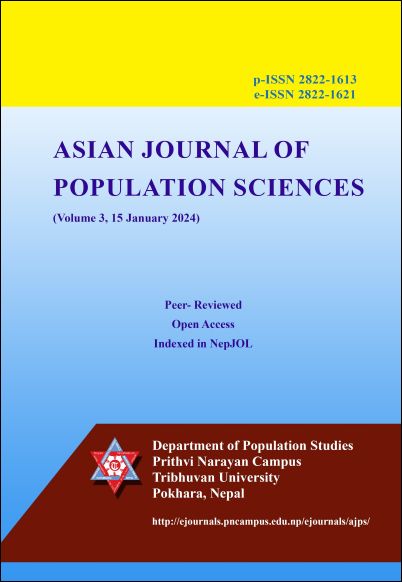Social Health Insurance Policy of Nepal: Issue of Equity and Equality
DOI:
https://doi.org/10.3126/ajps.v3i1.61789Keywords:
equity, equality, justice, premium, social health insurance, universal health coverageAbstract
The Government of Nepal implemented a social health insurance program (SHIP) in 2016 to achieve Universal Health Coverage. The objective of this paper is to obtain the opinion of the respondents towards the existing premium rate that has been charged to the members of the social health insurance program. The study followed a cross-sectional descriptive study designed. Information was collected from 360 households using the purposive sampling method. The sample was selected among the households who were interested in buying SHIP within a year but till they have not purchased the health insurance policy. A structured questionnaire was used to collect the opinions of the respondents and Chi Square was used to examine the association between the variables. The study concludes that the opinion of respondents towards the equity of premium for SHI is significantly associated with education and profession but not associated with gender, age, caste, health-related training, life insurance policy, agriculture insurance policy, and commercial health insurance. The majority of respondents opined that the premium should be based on the income of the household, as opposed to being equal among those with disparate incomes. The majority of respondents concurred that the current practice of imposing equal premiums on families having dissimilar incomes is unfair.
Downloads
Downloads
Published
How to Cite
Issue
Section
License

This work is licensed under a Creative Commons Attribution-ShareAlike 4.0 International License.




